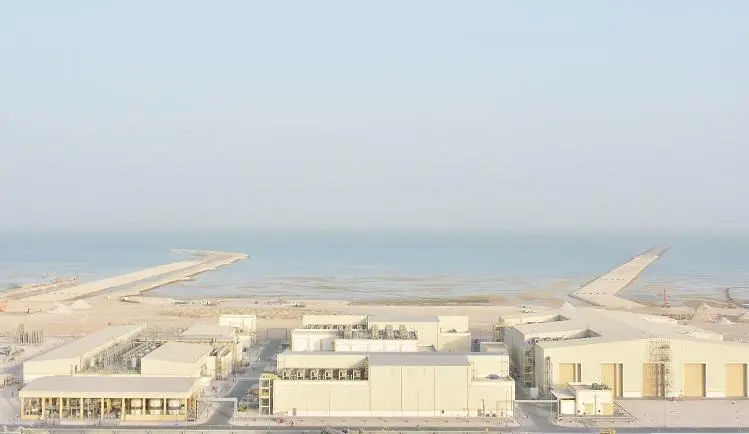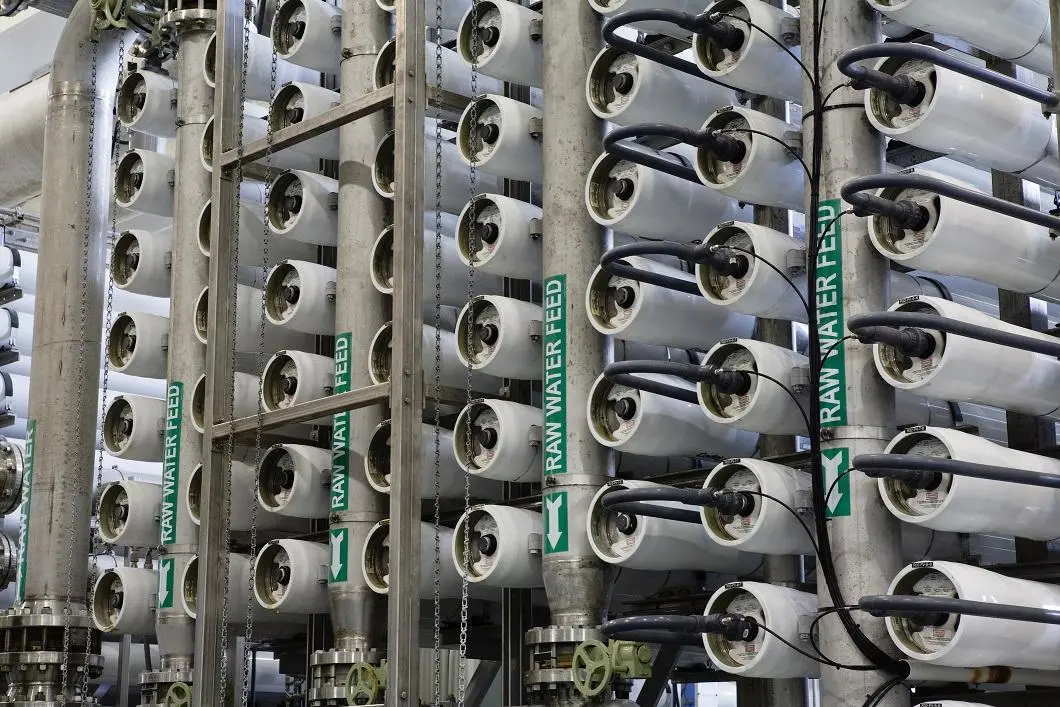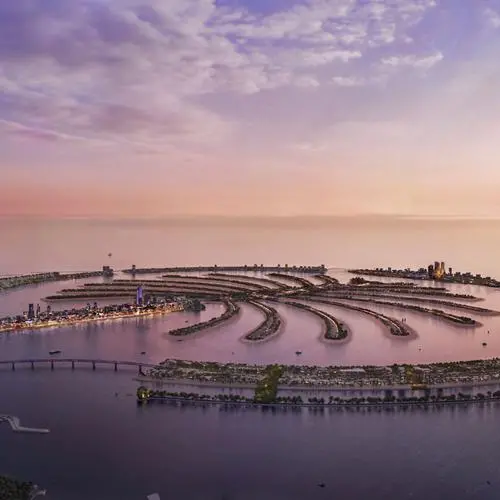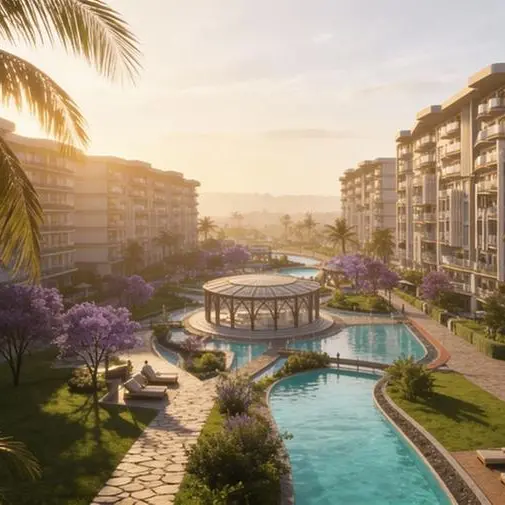PHOTO
Qatar is revolutionising desalination operations and maintenance (O&M) by effectively using Artificial Intelligence (AI) to optimise operations and save energy.
The Gulf state's 564,000 cubic metres per day (m3/day) Umm Al Houl desalination plant, which is on track to start operations next month, is a case in point.
Qatar's largest reverse osmosis desalination plant is among the 14 projects that its Spanish contractor Acciona has selected worldwide to fund initiatives that will reduce its carbon emissions from business activities.


The Umm Al Houl SWRO plant: Acciona is deploying its AI platform called Maestro to optimise operations
Acciona said in a statement that its Maestro AI platform would lower the Umm Al Houl plant's energy and reagent consumption, which in turn will reduce its CO2 emissions by 12,000 tonnes per year.
The company was awarded the design, construction and operation, and maintenance contract of the Umm Al Houl plant in 2015.
Guillermo Hijós, Acciona's O&M Desalination Middle East Director, told Zawya Projects that the O&M of desalination plants could benefit greatly from AI.
"The expected outcomes can be a reduction of energy and chemical usage, and the optimisation of the maintenance strategy through early prediction of equipment failure, which should improve plant availability as well," he said.
Umm Al Houl's AI platform is the first project in the Middle East to receive financing from Acciona's decarbonisation fund, which was set up to finance initiatives with the potential to reduce the company's direct and energy consumption emissions by up to 60 percent by 2030.
Acciona had said in its statement that the "Maestro AI platform processes operational data in real-time to allow predictive, autonomous and continuous optimisation at scale. This is expected to deliver lower operational costs while maximising output, plant reliability, and water quality."
Investing in AI for good
Given desalination's critical role in securing the Gulf region's potable water supply, Hijos assured that the use of AI would not impact the safety and security of desalination plants.
Umm Al Houl is projected to meet about 58 percent of Qatar's water needs after it is fully commissioned, according to Qatar Electricity and Water Company (QEWC), which holds a majority stake of 60 percent in the joint venture developing the project.
AI, Hijos explained, will be operating, providing directions for plant optimisation, but those directives will be implemented by process controllers who understand the effect of those decisions in the plant operation.
"Decisions will only be implemented in small incremental steps to be able to monitor and assess their impact continuously."
"In fact, we believe that AI will improve in the not so distant future the safety of personnel working on the plants, improve water quality beyond contractual requirements and serve as an additional control to ensure constant compliance of the brine discharge."
However, to ensure that future desalination tenders encourage advanced technologies like AI and Machine Learning (ML), Hijos said companies would need to prove to clients that those tools can be implemented safely and give them confidence that their assets will not be vulnerable to cyberattacks.
"Additionally, we need to prove the value of their implementation with solid case studies. Once we have more examples of specific metrics of the benefits of AI and ML adoption, it will no longer be required for clients to encourage their implementation. Rather companies will include those technologies as the only possible way of being competitive or complying with plant specification requirements."
The Maestro platform's scalability will enable Acciona to extend the benefits of AI to all its clients in the global water industry.
"We have already successfully implemented some tools involving AI and ML and have identified the contribution that they have had in mitigating plant operational costs and risks," Hijos added.
Acciona manages a water portfolio in the Middle East region that will eventually generate more than 2,820,000 m3/day of desalinated seawater once all the facilities are completed.
(Reporting by Anoop Menon; Editing by Seban Scaria)
Disclaimer: This article is provided for informational purposes only. The content does not provide tax, legal or investment advice or opinion regarding the suitability, value or profitability of any particular security, portfolio or investment strategy. Read our full disclaimer policy here.
© ZAWYA 2021





















